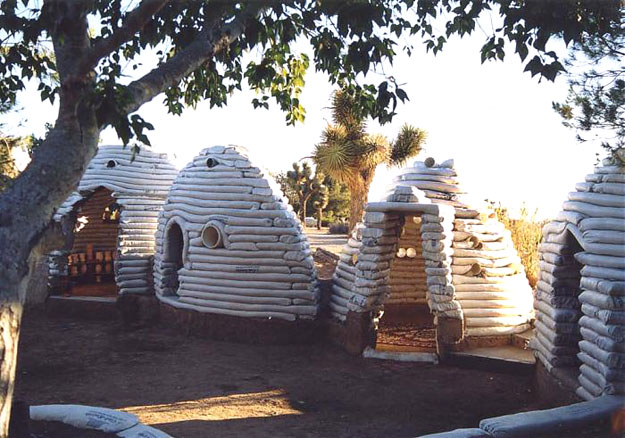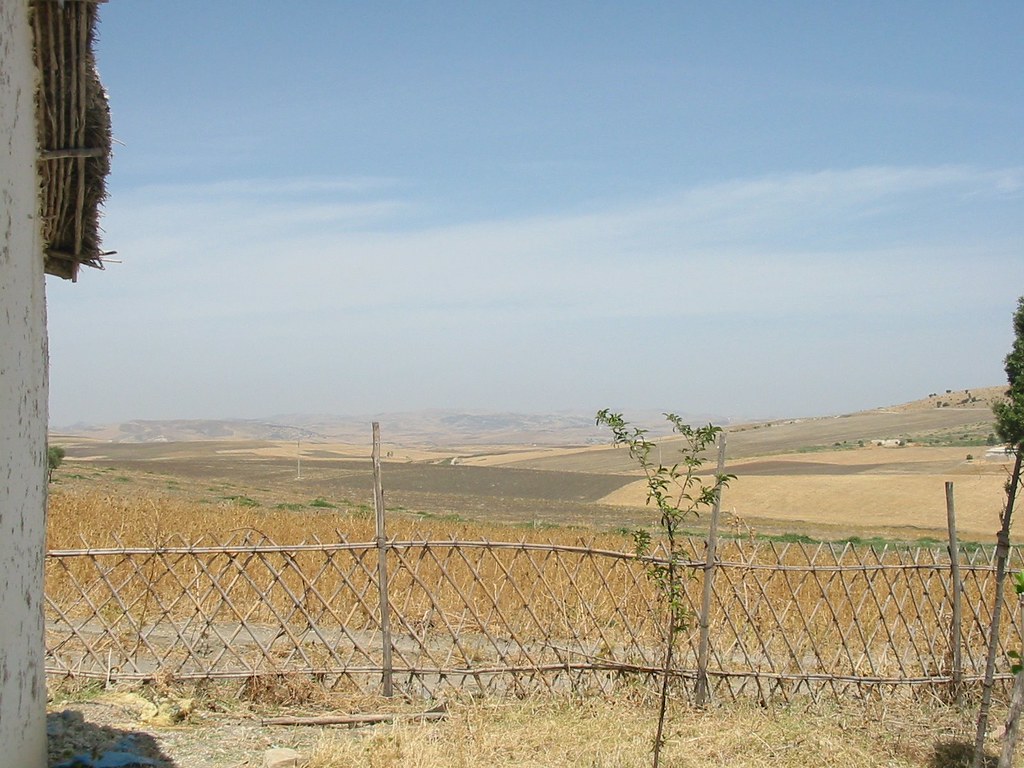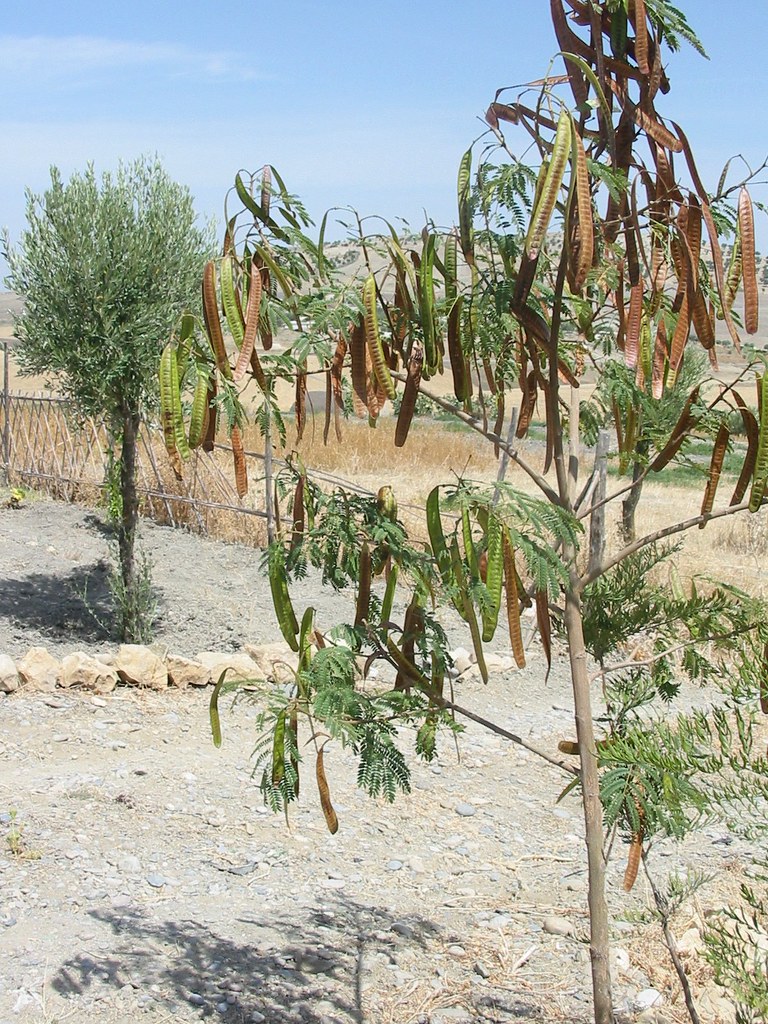I love, really love Nader Khalili's earthbag houses. I know that we are broke and that we don't have the time to begin to build anything for now, but just look at this.

 Wow.Nader Khalili was an Iranian-American architect. In the 80s, he worked on lunar habitat - yes - and began building earthbag structures, that he called "Super Adobe". Those structures are today used as emergency shelters, because they resist to earthquakes and bombs.
Wow.Nader Khalili was an Iranian-American architect. In the 80s, he worked on lunar habitat - yes - and began building earthbag structures, that he called "Super Adobe". Those structures are today used as emergency shelters, because they resist to earthquakes and bombs.
But some people build those ethical and very simple houses for themselves too.
And the houses are so cool, and apparently easy to build, I would love building one on our little piece of land in Morocco.

 You just need bags, earth, and some wire too. This site, and this blog explain how you can do it yourself.
You just need bags, earth, and some wire too. This site, and this blog explain how you can do it yourself. There are also plenty of pictures on the website of the Californa Insitute of Earth Art and Architecture (Calearth), founded by Khalili.
There are also plenty of pictures on the website of the Californa Insitute of Earth Art and Architecture (Calearth), founded by Khalili.
You can even buy, if you too are in love with those little houses, the bags from the website.
So, will there be someday an earthbag house in Ouled Mgatel?
Well, see for yourselves.--------------------------------------------------------------------------------------------M : Hey look, I just wrote a blogpost on earthbag houses.F : Oh yeah I know that stuff.He comes and looks at the computer screen.F : Wow! They're awesome!M : Yeah. I love this picture of the inside of a house. (Sigh)F goes back to his Arabic students. A few minutes later, he enters the room again with some kind of plan he just drew.
F : What do you think, where do I put the kitchen?----------------------------------------------------------------------------------------------
We waited the end of the heatwave to go back to Ouled Mgatel. There, we found our house very clean (thank you Fouad). We haven't begun the work yet; all the mudbricks are waiting for us in the garden. It's little weird to be there, in our mudbrick home, after all those months of living in the city. The beauty of the place is always a good surprise, but the empty shelves, the mould on our books and the kitchen, that haven't been used in 8 months now - except for the mint tea Bachir and Fouad drink everyday -, all of this makes me a little sad.


We were there on the day after Turia's wedding. Turia is one of Mohammed's daughters. This year, 4 of Mohammed's children get married. That's a little strange, given that it costs a lot of money - for the party (it lasts 2 days) and for the dowries. And it was a little strange, this day after the big party, when the bride is still in her family - and hasn't been in a room alone with her husband . On that night, she was going to her new home. For the first time, she was going to spend the night in a strange house. She was leaving to live forever with her new family - and a husband that, of course, her father chose for her.
But Turia seemed OK. She was dressed like a city girl - a light veil on her hair, pants matching her t-shirt, and heels. In one of the rooms of the house, there was everything she owned - the gifts, and what her father bought for her with the dowry: a bed, "farash" (Moroccan couches), a mirror, glasses and dishes, a blender, and lots, lots of tablecloths and blankets. There was also her luggage, full of clothes I had never seen her wear.
Her four sisters, the one that is already married, the one that is getting married in a month, the one that is getting married in a few years, and the one that will never get married, were inspecting the gifts and packing the luggage. Dunya, who will be married in one month, and who is much younger than Turia, was very chic too. She'll become soon a city girl, since her soon-to-be husband is living in Fès. Huria, the youngest of the 5 sisters, loses 2 sisters at the same time, but she gains two sisters-in-lawn, next month.
Abdelali seemed to be doing perfectly well. Life's smiling at him right now: the politics, a new tractor, and the land. And at the end of Ramadan, he's getting married with a girl from Fez - a striking symbol of his success, since usually the girls that grew up in the city don't marry guys from the country.

And what about our convalescent? It's Bachir, of course. He just had some tests done in Rabat - hmm, quite superficial I'm afraid - but apparently everything's fine. He still can't work, but he's getting better and better.



If somebody knows the name of that tree, which grew up very very fast, and is apparently in love with the earth of Ouled Mgatel - hmm, the same cannot be said of the other trees we planted - , I'm interested. Fred put a few seeds in a small container with some wet cotton, but somehow I doubt it's going to work...














